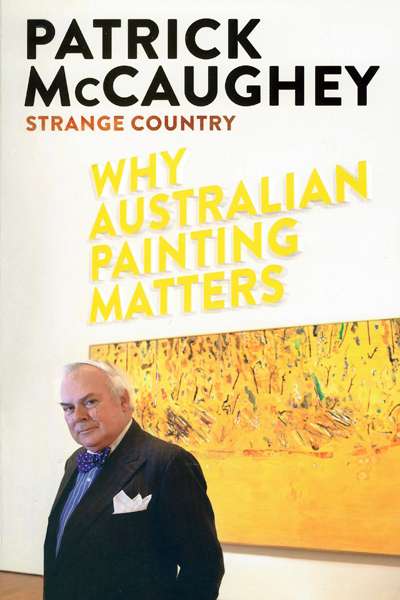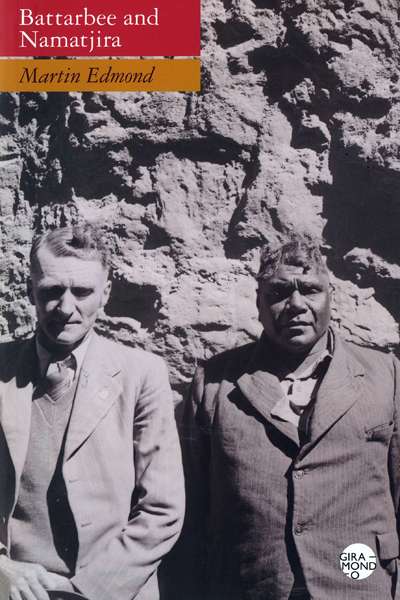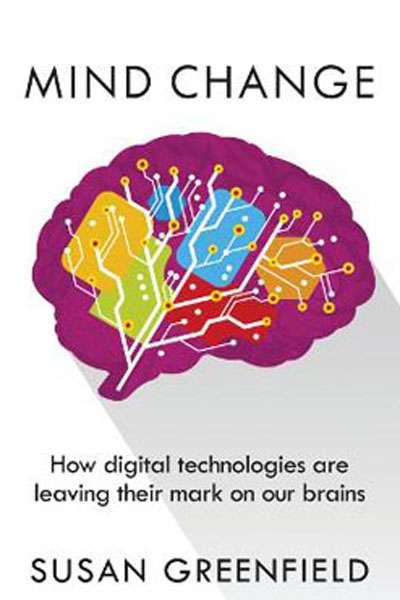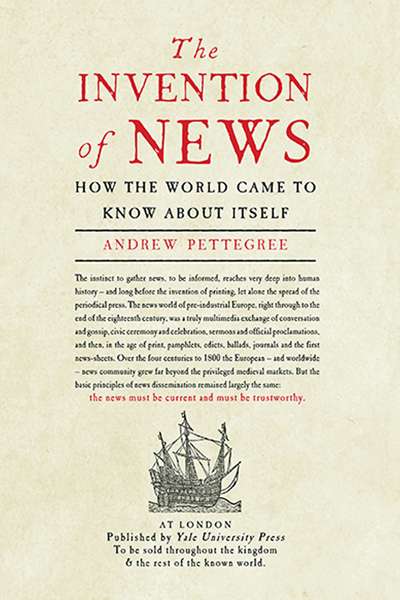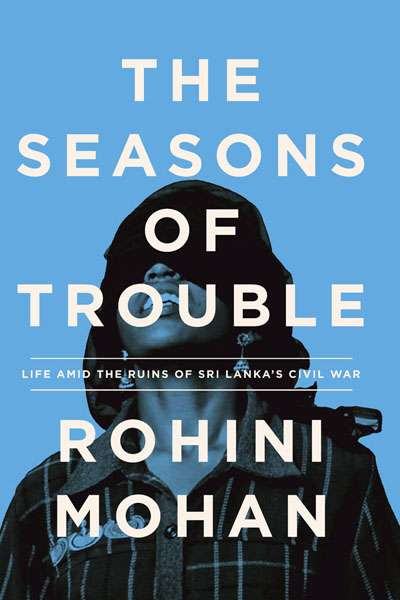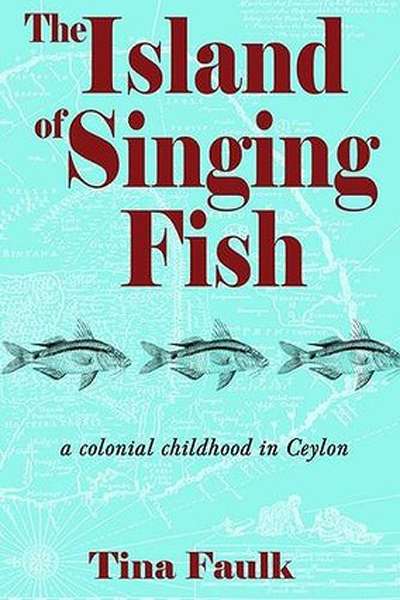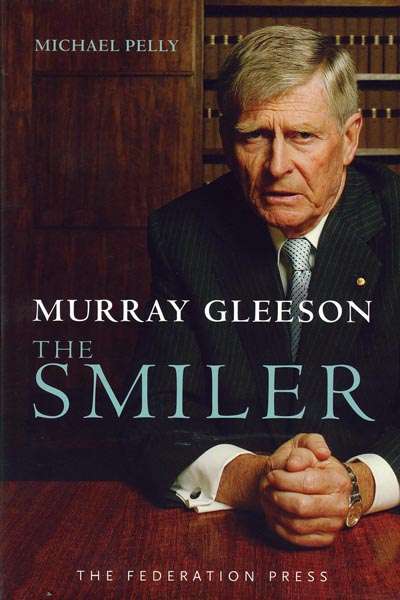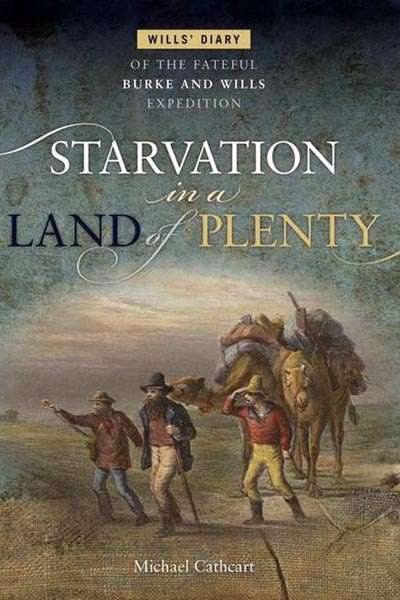Non Fiction
Strange Country: Why Australian painting matters by Patrick McCaughey
The cover assembles the book’s title and author’s name (writ very large) with a photograph of him, in an art gallery, before a wide yellow landscape by Fred Williams. Turning to the viewer, Patrick McCaughey is about to launch into a story that will satisfy the curiosity teased by the name of the book, Strange Country: Why Australian Painting Matters.
... (read more)There was something of the alchemist in Albert Namatjira. Using the most liquescent of media, he created impressions of the driest terrain. Painting in watercolour involves the fluid dispersal of pigment. Yet in Namatjira we find colours distilled in such a way that each landscape glows with a quiet intensity. This evocation of light reveals the influence of Rex Battarbee, who, long before he began to tutor his famous protégé, voiced dissatisfaction with ‘traditional methods’. He developed a painting technique of his own, specifically designed to ‘achieve luminosity’. Like many an inventor, he was cautious about sharing his discovery, in part because he believed that artists should develop on their own terms. But Namatjira was so keen an observer of his then master that he would have realised if Battarbee had withheld information. So Rex decided to teach him everything he knew, both for the sake of Namatjira, whom he clearly adored, and more generally and altruistically ‘for the sake of the Aborigines’.
... (read more)Hell-Bent: Australia’s leap into the Great War by Douglas Newton
Reading about the ‘khaki election’ of 1914 in Douglas Newton’s Hell-Bent evokes a sense of déjà vu in 2014, as Australia embarks on another war in the Middle East. During the campaign of 1914, Prime Minister Joseph Cook and Labor leader Andrew Fisher jostled to prove their loyalty to Britain and their enthusiasm for the impending war. Fisher’s efforts to match and outdo the conservative leader for patriotism bring to mind Opposition Leader Bill Shorten’s willingness to support the government’s military engagement in Syria and Iraq, and its amendments to national security laws. Plus ça change …
... (read more)War! What Is It Good For?: The role of conflict in civilisation from primates to robots by Ian Morris
It is a brave author who produces a book proclaiming the usefulness of war at a time when most of us are thinking about the horrors and wastefulness of World War I. Ian Morris, British by birth but now the Willard Professor of Classics at Stanford, and author of Why The West Rules – For Now (2010), has done just that and is receiving praise for his efforts. What are the merits of his case?
... (read more)Mind Change: How digital technologies are leaving their mark on our brains by Susan Greenfield
Over at the academy, the lecture is not what it used to be. Colourful slides and short videos accompany the spoken word, and this audio-visual feast can be ordered take-away, lecture recordings instantly downloadable from the university’s ‘learning management system’. Students sit, laptops open, alternating their gaze between the lectern and the web. Many stay home, speeding up the recordings to whiz through the dull bits. Academics speculate on whose lectures will be chipmunked the most.
Most of these students are digital natives, a generation that has grown up with the Internet, Facebook, immersive video games, and mobile devices. According to Susan Greenfield, a prolific Oxford neuroscientist, the natives are restless. They are also narcissistic, superficial, passive, inattentive, uncentred, and aggressive. In Mind Change, Greenfield ties these failings together as a syndrome of our time. Its cause, she argues, is the steady encroachment of digital technologies into our lives. Greenfield has raised concerns about their influence for many years, and her book attempts to marshal the scientific evidence to support them.
... (read more)The Invention of News: How the world came to know about itself by Andrew Pettegree
When St Paul’s burned down in 1561, no one was in any doubt that it was the work of God. The debate – and it was a furious one in the press of the time – concerned what this said about His views on the abolition of the mass. Contemporary press reports of the Battle of Lepanto, the St Bartholomew’s Day Massacre, and the Spanish Armada show how reporting of even the most important events was subject to wide variations in timeliness and accuracy. The church, with its networks of pilgrims and crusaders, played an important role in gathering and disseminating news in the late Middle Ages, but it was often merchants who were behind major advances, sometimes setting up their own networks. When the noise of conflicting reports became overwhelming, they tended to share information and to let everyone work out for themselves, or with friends, what they wanted to believe.
... (read more)The Seasons of Trouble: Life amid the ruins of Sri Lanka’s civil war by Rohini Mohan
In May 2009, Sri Lanka’s three-decade-long civil war came to an end with the government’s defeat of the separatist Liberation Tigers of Tamil Eelam (known as the Tamil Tigers). The long conflict had brought a range of horrific abuses: deliberate shelling of civilian areas; suicide bombing of civilian targets; enforced disappearances; rape; forced conscription, including child soldiers; and the use of civilians as human buffers. In 2011 a UN panel of experts made preliminary findings that these abuses were violations of international humanitarian law and human rights law and that some could even amount to crimes against humanity. This prompted the current international investigation into the allegations by the Office of the High Commissioner for Human Rights.
... (read more)The Island of Singing Fish: A colonial childhood in Ceylon by Tina Faulk
Two government acts shaped Tina Faulk’s life: Ceylon’s 1956 Official Language Policy Act, known as the Sinhala Only Act, and Australia’s Immigration Restriction Act of 1901, better known as the White Australia policy. The first virtually disenfranchised not only Faulk’s Burgher community, but also Sinhalese and Tamil middle-class élites, whose primary language, outside the family circle, was English. Countless Burghers were civil servants and, even if multilingual, were now unable to compete with Sinhalese-educated people for post-Independence public service positions. Similar selection criteria applied to military and commercial jobs.
... (read more)Although a few can pull it off, most judges have the good sense not to attempt an autobiography. Judges’ personalities are not usually of such outstanding interest, and their lives generally do not so engage with the world, as to generate the stuff from which autobiographies worth publishing are made. The reserve which the judicial experience inculcates, and the general inability to expose judicial life in prose that does not condemn the reader to death by suffocation, are additional inhibitors. Even those tragics who think that the judiciary occupies a place of mystical significance use the autobiographies of their colleagues as a cure for insomnia.
... (read more)Starvation in a Land of Plenty: Wills’ diary of the fateful Burke and Wills expedition by Michael Cathcart
The white explorers who first penetrated the interior of this continent were exceptional men. White Australians of the time considered them heroes, performing an essential role in identifying opportunities for exploitation, settlement, and commerce. Mostly, the explorers were heroic – determined, tough, single-minded, and stoic in the face of enormous hardship. They also needed bushcraft, that elusive ability to ‘read’ the landscape, the weather, vegetation communities, and animal behaviour, so as to improve the quality of the daily judgements needed for survival. Success under these conditions requires a clear vision and a strong, intelligent, and organised leader. John McDouall Stuart and Augustus Gregory come to mind as examples; Robert O’Hara Burke does not.
... (read more)

